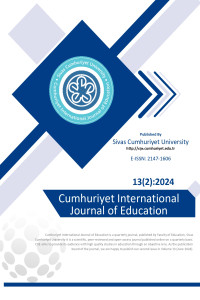Research Article
Issue Reviewers

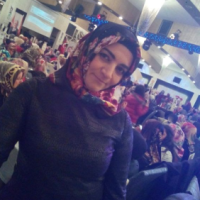
Aysel ARSLAN, Sivas-Türkiye'de doğdu. İlkokulu Sivas'ta okudu. Ortaokul ve liseyi açık öğretim programlarından tamamladı. Lisans eğitimini 2010-2014 yılları arasında Sivas Cumhuriyet Üniversitesi Türkçe Öğretmenliği Bölümünde tamamladı. Yüksek Lisans eğitimini 2014-2017 yılları arasında Sivas Cumhuriyet Üniversitesinde, doktora eğitimini 2017-2021 yılları arasında Atatürk Üniversitesinde Eğitim Programları ve Öğretim Anabilim Dalında tamamladı. 2023 yılında alanında Doçent unvanını aldı. 2017-2018 yılları arasında Gaziantep Şahinbey merkez ilçede Türkçe Öğretmeni olarak görev yaptı. 2018-2022 yılları arasında Sivas Cumhuriyet Üniversitesi Sağlık Hizmetleri MYO'da öğretim görevlisi olarak, 2022-2023 yılları arasında Sivas Cumhuriyet Üniversitesi Eğitim Fakültesi, Eğitim Bilimleri Bölümünde Dr. Öğr. Üyesi olarak, 2023 yılından itibaren Doçent olarak görev yapmaktadır. Alanında çok sayıda makale, bildiri ve kitap bölümü yayınlamıştır. Evli ve iki çocuk annesidir.








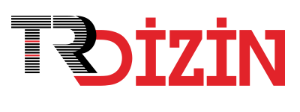



Lisans - Sınıf Öğretmenliği (2006-2010) / İstanbul Üniversitesi
Yüksek Lisans - Sınıf Eğitimi (2010-2013) / İstanbul Üniversitesi
Doktora (2014-2018) / İstanbul Üniversitesi
Doçentlik (2023) / Temel eğitim - Hayat Bilgisi

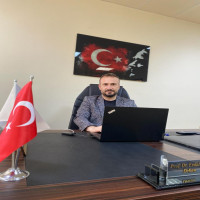
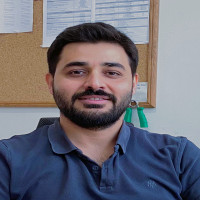
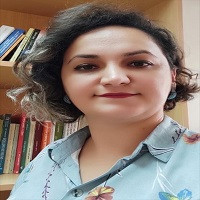

01.01.1976 Adana (Kozan) doğumludur. İlk ve orta öğrenimini Adana'da tamamlamıştır. 1993 yılında Çukurova Üniversitesi Tıp Fakültesi Sağlık Koleji Hemşirelik Bölümü'nden birincilikle mezun olmuştur. Aynı yıl Çukurova Üniversitesi Tıp Fakültesi Balcalı Hastanesi'nde Cerrahi Yoğun Bakım hemşiresi olarak göreve başlamıştır. Hemşirelik görevlerini Cerrahi Yoğun Bakım, Acil Tıp (Büyük ve Çocuk Acil Klinikleri dahil) ve Kadın Doğum Obstetrik kliniklerinde başarıyla yürütmüştür. 1999 yılında Çukurova Üniversitesi İktisadi ve İdari Bilimler Fakültesi İşletme Bölümünden (İngilizce) mezun olmuştur. 2002 yılında Çukurova Üniversitesi Sosyal Bilimler Enstitüsü İşletme Anabilim Dalı'nda yüksek lisansını tamamlamıştır. 2002 yılında Çukurova Üniversitesi Tıp Fakültesi Ayniyat Saymanı (Balcalı Hastanesi Eczanesi Ayniyat Saymanlığı da dahil) olarak görevlendirilmiştir. Tıp Fakültesi Ayniyat Saymanlığı görevinin yanı sıra Balcalı Hastanesi Plan Bütçe ve Satın Alma birim sorumlusu olarak görev yapmıştır ve daha sonraki yıllarda benzer idari görevleri de yerine getirmiştir. Ayrıca, Çukurova Üniversitesi İdari ve Mali İşler Daire Başkanlığı'nda Şube Müdürü olarak görev yapmıştır. 2008 yılında Adıyaman Üniversitesi Kahta Meslek Yüksekokulu Muhasebe ve Vergi Uygulamaları Bölümü'ne öğretim görevlisi olarak atanmıştır. 2009-2011 yılları arasında Adıyaman Üniversitesi Genel Sekreter Yardımcısı olarak görev yapmıştır. Ayrıca, Kahta Meslek Yüksekokulunda Finans, Bankacılık ve Sigortacılık Bölüm Başkanı olarak 6 yıl görev yapmıştır. 2018 yılında İnönü Üniversitesi Sosyal Bilimler Enstitüsü İşletme Anabilim Dalı Yönetim ve Organizasyon Bilim Dalı'nda doktora eğitimini tamamlamıştır. Aralık 2018'de Adıyaman Üniversitesi Eczacılık Fakültesi Eczacılık Meslek Bilimleri Bölümü Eczacılık İşletmeciliği Anabilim Dalı'na Öğretim Üyesi olarak atanmıştır. 2019 yılından itibaren Eczacılık Fakültesi Eczacılık İşletmeciliği Anabilim Dalı Başkanı olarak görev yapmaktadır. Ulusal ve uluslararası pek çok bildirisi, kitap bölümleri ve makalesi bulunmaktadır. Bununla birlikte, uluslararası dergilerde ve Ulakbim sistemine kayıtlı bazı dergilerde hakemlik yapmaktadıır.
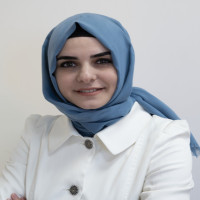



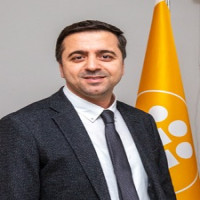
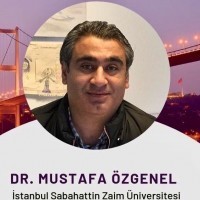
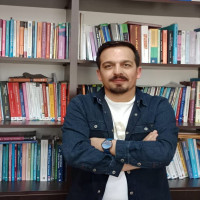
Mustafa Kocaarslan is an Associate Professor in Primary School Education Department at Bartın University, Turkey. He studied Primary School Education at the Gazi University and earned his doctoral degree in 2015. Dr. Kocaarslan is a member of the Educational Research Association in Turkey. His areas of academic interest include Literacy Education, Reading Fluency, Reading Comprehension, Mental Imagery, and Executive Functions




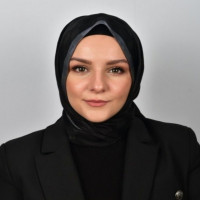
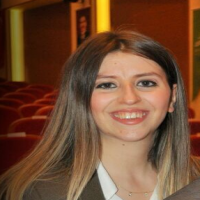

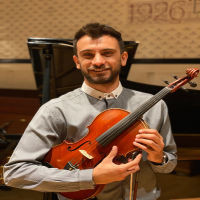



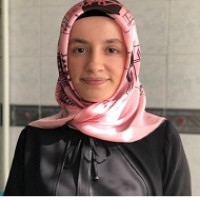


Aim & Scope
Cumhuriyet International Journal of Education is journal published four times a year. It is an open access journal; it does not charge any fees. It aims to contribute to scientific enquiry by disseminating information with its original articles in English or Turkish.
The aim of Cumhuriyet International Journal of Education is to make original contributions to body of research in education and interdisciplinary studies with studies at high academic standards and to keep abreast of recent developments in the world with a universal point of view and to determine and provide unique solutions to the changes and needs in education area, to support the development of education institutions, vocational institutions and community at national and international level and contribute to the accumulation of sources in this area by publishing studies in Turkish and English.
Frequency of Publication
Cumhuriyet International Journal of Education is to be published four times a year as a “Refereed Journal.”
Cumhuriyet International Journal of Education covers experimental, review and survey studies which are directly related to pre-school, primary education, secondary education, higher education and adult education. It is an international refereed journal which gives place to publications from in all disciplines of education and interdisciplinary studies related with them. It accepts manuscripts both in English and Turkish.
Author Guidelines
1. The studies to be sent to Cumhuriyet International Journal of Education for evaluation must be prepared in accordance with the spelling rules specified below.
2. Publication language is Turkish and English.
3. The length of a work should not exceed 8,000 words, including the main text, bibliography and appendices.
4. The articles to be sent to the journal should have a short summary of 200-250 words in Turkish and English, and also include at least 5 key words. In addition, an English/Turkish long summary between 750-1000 words should be included in all studies to be sent in Turkish or English. Articles without long abstracts will not be included in the evaluation process. Long English/Turkish abstracts in original research articles; It should contain sub-headings of purpose, method, findings, discussion and conclusion.
5. Manuscripts should be prepared as a Word file without any formatting, in accordance with the journal rules stated below.
6. Care should be taken that the tables and figures sent do not go beyond the page dimensions of the journal and comply with the APA-7 style. A table or figure should not overflow to the next page. If it comes to the end of the page and some of it is overflowing, it should be placed on the following page. In addition, 10 points and single spacing should be used in tables and figures.
7. Manuscripts should be prepared in Word format, A4 size, 12 points, Times New Roman font, with 2.5 cm margins on all four sides of each page. Please make sure that the text of your article is double-spaced and has sequential line numbering. Each page should be numbered.
8. The main text of empirical studies may include introduction, method, findings, discussion and conclusion sections. In the method part, design, universe and sample, study group or participants, data collection tools and data analysis etc. must have subsections.
9. In compilation-type studies, the subject should be original and up-to-date, the problem should be clearly presented, and the relevant literature should be analyzed and discussed effectively. Compilation studies that have been studied before, that do not bring innovation to the field and do not contain a critical perspective will not be accepted.
10. APA (7th Edition) style should be used for bibliography, in-text citations, headings, tables, figures.
11. The file uploaded to the system should not contain any information about the author(s). In Microsoft Word documents, the user name should be removed from the File menu, General > Options tab, and should not contain information that would make it possible to identify the author.
12. The Ethical Commitment for articles accepted for publication is presented below.
Ethical Commitment
13. All candidate articles should be scanned with software such as iThenticate© and Turnitin© before submission, and these screening reports should be submitted with the article. The similarity rate of the entire article must be less than 20%. CUED reserves the right to reject all candidate articles with academic plagiarism at the editorial stage.
Note: The links given in this text are suggestions and our journal is not responsible for the content of the web pages you access by clicking these links.
Bu kaynak metin hakkında daha fazla bilgiEk çeviri bilgileri için kaynak metin gerekli
Geri bildirim gönder
Yan paneller
Ethical Principles and Publication Policy
As stated below, Cumhuriyet International Journal of Education will not evaluate articles that do not have Ethics Committee Approval.
The information provided by TR Directory on "Ethics Committee Approval" on 06/03/2020 is presented below. We kindly ask our authors who will send their works to our journal, to consider this information.
Is ethics committee approval required for all articles?
No. In the criteria, it is stated as “articles that require the permission of the Ethics Committee”.
Studies that require the approval of the Ethics Committee are as follows.
All kinds of research conducted with qualitative or quantitative approaches that require data collection from the participants by using survey, interview, focus group work, observation, experiment, interview techniques.
The use of humans and animals (including material/data) for experimental or other scientific purposes,
Clinical studies on humans,
Animal studies,
Retrospective studies in accordance with the law on the protection of personal data,
Moreover;
Indicating that an “informed consent form” has been received in case reports,
· Obtaining and specifying permission from the owners for the use of scales, surveys, photographs belonging to others,
Statement that copyright regulations are complied with for the intellectual and artistic works used
Are there any restrictions on publications made outside of universities with these rules of TR Directory?
No. Non-university researchers can also apply to the Ethics Committees in their regions.
Moreover;
· Journals should state that they comply with the rules on "Publication Ethics", "Research Ethics" and "Receiving Legal/Special Permission" by referring to international standards, by opening a separate heading for each one, both on the web page and in the printed journal.
· The issue of compliance with publication ethics in journals should not be left to the sole responsibility of the authors, the path to be followed in journal publication ethics should be clearly defined.
· In articles to be published in journals, whether ethical committee permission and/or legal/special permission is required should be stated in the article. If it is necessary to obtain these permissions, it should be clearly presented from which institution, on what date and with what decision or issue number.
· If the study requires the use of human and animal subjects, international declaration, guide, etc. It must be declared that it has been carried out properly.”
Studies published in our journal go through three important stages: preliminary review, blind peer-review process and editorial process. During the peer-review process, each article is reviewed by at least two referees.
Bu kaynak metin hakkında daha fazla bilgiEk çeviri bilgileri için kaynak metin gerekli
Geri bildirim gönder
Yan paneller
Price Policy
Dergimizde yayımlanan makalelerden herhangi bir ücret talep edilmemektedir.


